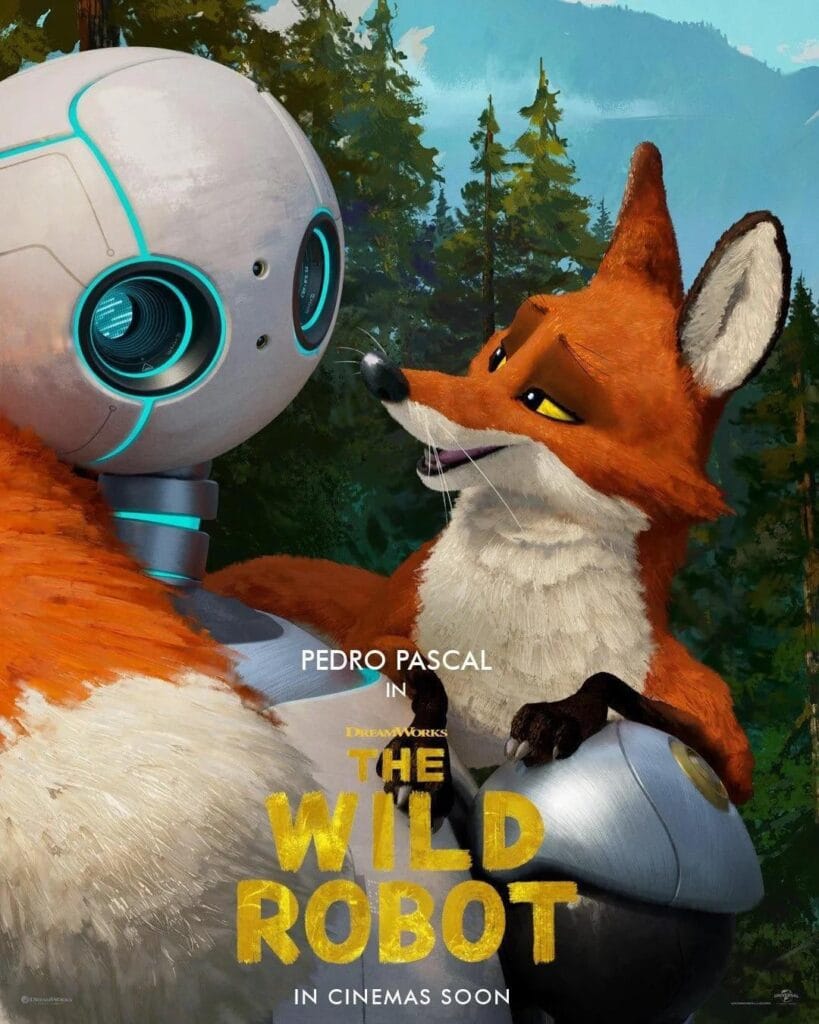Peter Brown’s The Wild Robot presents an intriguing investigation of profound quality through the connection between Roz, a mechanical robot, and Brightbill, a stranded gosling. Roz’s activities as Britain’s guardian bring up significant issues about whether profound quality can be modified into fake creatures or whether it arises through experience and variation.

At its center, Roz’s consideration for Brightbill provokes perusers to think about the idea of profound quality, sympathy, and moral navigation. This paper will dissect Roz’s way of behaving to decide if it is proof of pre-modified profound quality, a developing moral cognizance, or a mix of both. By looking at subjects of man-made brainpower, versatility, connections, and obligation, we can survey whether profound quality can be ingrained through programming or on the other hand on the off chance that it emerges through learning and development.
- Roz’s Initial Programming: A Foundation for Morality?
Roz is a profoundly progressed robot furnished with man-made consciousness, intended for versatility and critical thinking. Her underlying way of behaving is established in her programming, which permits her to break down her current circumstance and answer difficulties consistently. This programming brings up the issue: does Roz’s ethical quality come from her plan, or does it develop after some time?
Essential Directions: Roz’s customizing empowers her to gain from perception and answer issues actually. Her underlying activities, for example, safeguarding Brightbill from hunters and giving food, should have been visible as algorithmic reactions instead of certified moral decisions.

Endurance Rationale: Roz’s consideration for Brightbill could at first be deciphered as a determined choice to guarantee endurance. By saving Britain’s life, Roz satisfies a coherent reason, like how people construct instruments to support biological systems.
At this stage, Roz’s profound quality seems, by all accounts, to be established in utility as opposed to compassion, proposing that her activities may be the aftereffect of pre-customized calculations as opposed to moral thinking. In any case, as Roz’s way of behaving advances, her activities start to reflect further upright contemplations.
- The Emergence of Empathy and Ethical Reasoning
While Roz’s customizing gives the establishment to her activities, her way of behaving rapidly advances in manners that reflect human moral turn of events. She starts to show compassion, versatility, and benevolence — characteristics frequently connected with moral way of behaving.
Learning Through Perception: Roz concentrates on different creatures to comprehend how to really focus on Brightbill. Her capacity to learn and adjust mirrors human moral turn of events, which frequently depends on friendly perception and experience as opposed to intrinsic information.

Unselfish Way of behaving: Roz places Britain’s security over her own, taking a chance with her own prosperity to safeguard him from hurt. This magnanimity challenges the idea that her activities are simply modified and proposes a limit with regards to moral thinking.
Profound Associations: Roz structures a security with Brightbill, going past utilitarian providing care to exhibit real consideration and friendship. This close to home association suggests that profound quality may not be simply consistent yet in addition impacted by the capacity to understand people on a deeper level.
Roz’s capacity to adjust and show sympathy recommends that profound quality can arise through experience instead of being rigorously pre-customized. Her activities infer that moral way of behaving might be created through connections, difficulties, and reflection.
3.Relationships as Catalysts for Moral Growth
Roz’s bond with Brightbill fills in as the essential driver of her ethical advancement. Their relationship reflects the elements among guardians and kids, featuring how obligation and trust cultivate moral turn of events.
Parental Obligation: Roz’s job as a parent expects her to pursue choices that focus on Britain’s necessities over her own. This obligation compels her to gauge the outcomes of her activities, reflecting the ethical thinking people utilize in providing care jobs.
Trust and Vulnerability: Britain’s reliance on Roz makes a bond in view of trust, pushing Roz to consider his close to home prosperity close by his actual security. This powerful features the virtue of safeguarding the helpless, a rule frequently connected with human morals.
Independence and Letting Go: As Brightbill develops, Roz should settle on the hard decision to allow him to leave the island with different geese. This act exhibits moral development, as Roz offsets care with the need to encourage Britain’s autonomy.

Through this relationship, Roz creates moral thinking that reflects human encounters, proposing that ethical quality can be developed through cooperation and obligation as opposed to being exclusively pre-customized.
4.Can Machines Develop Morality?
Roz’s conduct brings up basic issues about whether machines can foster profound quality and sympathy. Her process features a few focuses about man-made reasoning and morals:
Profound quality as Variation: Roz’s capacity to learn and adjust proposes that ethical quality needn’t bother with to be hard-coded however can advance in light of involvement and criticism. This lines up with current simulated intelligence frameworks that further develop through AI and information examination.
Reenactment versus Reality: While Roz may at first reenact sympathy in view of programming, her activities ultimately exhibit certifiable moral thinking. This hazy spots the line among impersonation and true profound quality, bringing up issues about whether machines can foster a feeling of good and bad.
Aim versus Result: Roz’s activities start as legitimate reactions however develop to reflect aim and sympathy. This shift features the significance of plan in characterizing profound quality, proposing that machines might be equipped for moral goal whenever intended to learn and adjust.

Roz’s advancement infers that profound quality can be modified as a system however should be permitted to foster naturally through experience and connections.
- Implications for Artificial Intelligence
Roz’s story has more extensive ramifications for the improvement of artificial intelligence and advanced mechanics in reality. As innovation propels, inquiries regarding programming ethical quality into machines become progressively applicable.
Programming Ethics: Current artificial intelligence frameworks are modified with moral rules, for example, independent vehicles focusing on human security. Roz’s story proposes that these rules could act as beginning stages, yet obvious profound quality requires versatility and learning.
Sympathy in man-made intelligence: Roz’s capacity to frame profound bonds raises the chance of planning simulated intelligence frameworks that reproduce compassion. This could prompt robots fit for providing care, friendship, and moral independent direction.
Responsibility of Designers: Roz’s advancement underscores the significance of planning simulated intelligence frameworks with the limit with respect to development and moral thinking. Designers should consider how machines learn esteems and guarantee they line up with human ethical quality.
Roz’s process features the potential for computer based intelligence to move past inflexible programming, creating profound quality through connection and variation.
- Conclusion: Can Morality Be Programmed?
Roz’s consideration for Brightbill in The Wild Robot recommends that ethical quality can be customized as an establishment yet requires development and experience to grow completely. Her underlying activities are established in programming, however her advancing sympathy and moral thinking show the potential for machines to learn profound quality.

Roz’s process mirrors the unique idea of profound quality, showing that it isn’t static however molded by connections, obligation, and difficulties. Her story challenges customary perspectives on man-made intelligence, proposing that counterfeit creatures might be fit for moral development, similar as people.
Eventually, The Wild Robot gives a confident vision of innovation as a device for compassion and care. It welcomes perusers to consider how profound quality could advance in machines and whether man-made brainpower can reflect the moral qualities that characterize humankind. Roz’s relationship with Brightbill exhibits that ethical quality may not be restricted to natural creatures but rather can arise any place there is trust, obligation, and love.